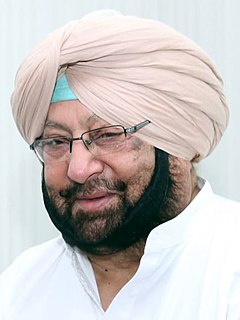A Quote by Karl Lagerfeld
Fortunately there is more wealth in the world than there was at the time of the global economic crisis of 1929 - Chinese, Indian, Arab and Russian.
Related Quotes
If you followed this economic crisis and you do not think that the world is getting flatter, you are not paying attention. We saw the entire global economy at one time acting totally in sync. The real truth is the world is even flatter than I thought. Our mortgage crisis is killing Deutsche Bank. You still don't think the world is flat?
Capitalism, the ogre of those protesting Wall Street, has suffered a public relations crisis in the wake of the global economic collapse. But any remedy to the systemic corruption that led to the collapse should not displace recognition that capitalism creates wealth. Capitalism, and no other economic system, has raised millions from poverty around the world.
The current economic crisis...has numerous causes and sends a powerful message about the need for a profound revision of the model of global economic development. It's an acute symptom that is added to other more grave and already well-known ones, such as the continued imbalance between wealth and poverty, the scandal of hunger, the ecological emergency and the problem of unemployment, which has now become general. In this context a strategic re-launching of agriculture appears decisive.
Now we are talking about concluding a free trade agreement between the Eurasian Economic Council, recently established in the post-Soviet space, and China. A similar agreement was concluded a short time ago with Vietnam. Then, we will coordinate, at least we are ready to do this, the Chinese concept of the Silk Road Economic Belt with our newly-created regional organisation. So, do you understand how diverse, multi-faceted and deep Russian-Chinese ties have become over the last couple of decades? And we resolved the border issue.
The climate crisis is the greatest challenge humanity has ever faced. From not only the warming of the earth with higher global temperatures, but also from strengthening storms and expanding droughts to melting ice and rising seas, the costs of carbon pollution are already being felt by governments, corporations, taxpayers and families around the world. The climate crisis will affect everything that we love and alter the course of our future. Now, more than ever, we must come together to solve this global crisis. We must act decisively, rise to the occasion and solve this monumental challenge.
The economic borderlines of our world will not be drawn between countries, but around Economic Domains. Along the twin paths of globalization and decentralization, the economic pieces of the future are being assembled in a new way. Not what is produced by a country or in a country will be of importance, but the production within global Economic Domains, measured as Gross Domain Products. The global market demands a global sharing of talent. The consequence is Mass Customization of Talent and education as the number one economic priority for all countries






































